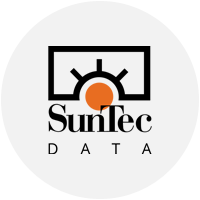
“It is estimated that data generated per second for every person on earth will amount to approximately 1.7 megabytes by 2020.”
With data growing at such a rapid pace, it will be difficult for businesses to manage it in the coming time. Though it was easier to maintain the data manually when the quantum of data was low, the times have changed drastically since then. And so, it has become imperative to switch to a new system or platform where data can be integrated into a single location, making it more manageable. The intent is to efficiently handle all business-critical information not only for the smooth functioning of the business, but also to facilitate better decision-making.
When migrating data to a new system, do everything you can to prevent leakage or loss, which, not to mention, if not handled well, can turn out to be a nightmare for your business. That said, if your systems are significantly populated with legacy data, you can move all of it to a new, secure system by undergoing the data migration process.
But what exactly is data migration?
Data migration is a powerful medium to make your critical business data all the more agile. It involves the process of seamlessly moving the legacy data from an old system to a new one, eliminating the complexities and risks of data leakage or loss.
Here’s what you need to know before making a move towards data migration:
1. Do you actually need migration?
First of all, you must be aware whether you need to migrate your business data or not. Just so you know, it is usually undertaken during upgrades or when you intend to move the data to a cloud environment.
2. What are the available options?
You might be looking for the best option to migrate your business data. There are several possibilities to consider; you can either use export and import tools, do it through a user interface, or alternatively take advantage of database scripts. There exist many extract, transform, load (ETL) tools as well, which are ideal for larger volumes of data. And if you don’t want to do all this, simply go for data migration services.
3. Has a preliminary assessment been done?
Assessing the process before finally carrying out the migration can not only help minimize the possible risks involved, including of course data leakage, but also ensure that you steer clear of the issues that may crop up otherwise.
4. Are you ready for the pitfalls?
Even if you have an exceptionally proficient team to carry out the migration process, pitfalls could still crop up. In such a scenario, testing is the key, eliminating the problems that might turn out bigger at a later stage.
5. How do you plan to keep your data secure?
Migration can sometimes make the data vulnerable to attacks or even conducive to unauthorized access. To keep the integrity of data intact, you must consider all factors that can affect its safety and opt for a secure migration process.
With a sea of data being handled by most businesses, it is important that while undergoing the data migration process, all aspects are well thought of and evaluated adequately to avoid failure, making the business ready for the future.
Managing large volumes of data is quite challenging when you have several critical tasks to do. To counter this challenge, the intervention of an expert becomes imperative, allowing you to focus on more significant aspects of business. And that’s when SunTec Data comes into the picture. Having vast experience in data management, our data experts can take care of all your critical business data with great efficacy and diligence. Share your requirements at info@suntecdata.com to get started.

.svg)



